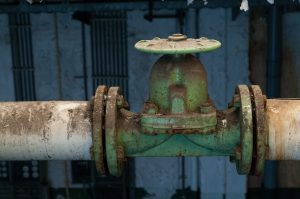"How is it possible that Ukraine is plotting against a NATO country?" State Secretary Zoltán Kovács asks.Continue reading
According to a leaked US intelligence wiretap transcript, Ukrainian President Volodymyr Zelensky would have destroyed Hungarian industry for being pro-Russian. In a meeting with Deputy Prime Minister Yulia Svryenko in mid-February, Zelensky suggested “blowing up” the Friendship oil pipeline, which also supplies Hungary.
If the president of Ukraine decided to blow up the Friendship pipeline, all oil supplies to Hungary would be diverted to the Adriatic pipeline, theoretically meeting most of Hungary’s refinery needs, energy analysts told news portal Index.
Experts said that
in the case of Hungarian product supply, the blast would not cause an immediate disruption, as MOL has commercial stocks (roughly three to four weeks of crude oil and oil products) and the Hungarian Hydrocarbon Stockpiling Association has strategic oil and product stocks, currently equivalent to roughly 90 days of consumption.
If Zelensky were to decide to blow up the Friendship pipeline, the question is how much time would be lost. If transit can be restarted within two months of the blast, then there would be no need for a major reshuffle in supply. But if the explosion or the political will is such that the pipeline does not start after two months, then alternatives would have to be sought.

Photo: Pixabay
This would mean more imports via the Adriatic pipeline and more imports from neighboring countries. Experts stress that the current capacity of the Adriatic pipeline is not sufficient to fully supply all the refineries on the southern branch of the Friendship pipeline – Bratislava, the Danube, and Litvinov. This would currently require upgrades, costing a few hundred million euros and would take up to two years. The Croatian side is already working on such an alternative route, and they would like to expand it with the help of EU funding.
If the Ukrainian president were to make an irrational decision against Ukraine’s own interests, or if the war were to make it impossible to transport crude oil on the Friendship pipeline, Hungary would presumably focus more on fuel imports, and the cost-effective pipeline transport would be replaced by sea transport. In this case, the price of finished products would increase immediately, but presumably the MOL Group would still manage to ensure security of supply. After all, much effort has already been made to ensure that the two internal refineries can be fully supplied from the sea – but it is true that there is still room for improvement.
via Index, Featured image: Facebook/Volodymyr Zelensky